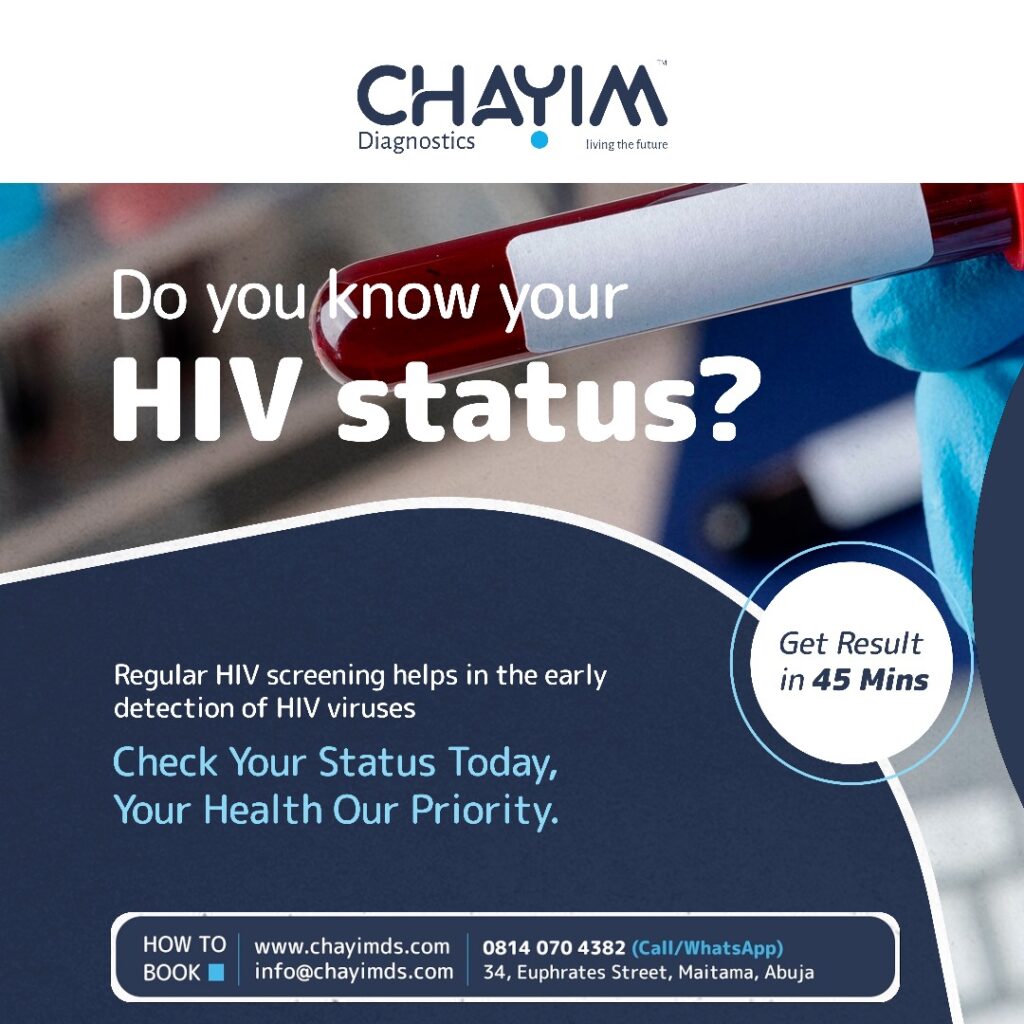HIV SCREENING: WHY IT MATTERS

HIV (Human Immunodeficiency Virus) is an infection that attacks the body’s immune system. Acquired immunodeficiency syndrome (AIDS) is the most advanced stage of the disease.
HIV targets the body’s white blood cells; it weakens the immune system, which makes it easier to get sick with diseases like tuberculosis, infections and some cancers. It spreads from the body fluids of an infected person, including blood, breast milk, semen and vaginal fluids also from a mother to her baby, but it does not spread via kisses, hugs or sharing food.
Statistics from National Agency for the Control of Aids (NACA) shows that HIV prevalence in Nigeria is 1.3% among adults aged 15–49 years and that there are 1.9 million people living with HIV in Nigeria.
Highlighted below are some importance of HIV Screening:
- Early Detection and Treatment: HIV screening allows for the early detection of the virus. Early diagnosis is critical because starting antiretroviral therapy (ART) early in the infection can greatly slow down the disease’s progression. Early treatment helps people with HIV live longer, healthier lives and reduces the risk of transmitting the virus to others.
- Reducing Stigma and Discrimination: Encouraging HIV screening helps to reduce the stigma and discrimination associated with the virus. By normalizing testing and promoting awareness, it becomes easier for individuals to seek testing without fear of judgment, leading to increased access to prevention and care services.
- Prevention of Mother-to-Child Transmission: Pregnant individuals with HIV can transmit the virus to their infants during childbirth or breastfeeding. Early detection of HIV in pregnant individuals allows for interventions to prevent mother-to-child transmission, such as the administration of antiretroviral medications during pregnancy and delivery.
- Promoting Safer Behaviors: Knowledge of one’s HIV status can motivate individuals to adopt safer behaviors to prevent the acquisition or transmission of the virus. This includes using condoms consistently, practicing monogamy or mutual monogamy, and seeking support for substance abuse issues.
- Access to Care and Support Services: Individuals who test positive for HIV can be linked to appropriate medical care, support services, and counseling. Early engagement with healthcare providers allows for monitoring of the virus and timely intervention in case of complications.
- Public Health Impact: Widespread HIV screening contributes to public health efforts by identifying and treating individuals with HIV, thereby reducing the overall prevalence of the virus in the population. This, in turn, can lead to a decrease in new infections and improve the overall health of communities.
- Health Equity: Encouraging HIV screening helps promote health equity by ensuring that everyone, regardless of background or socioeconomic status, has access to testing and care services. This is particularly important given the disproportionate impact of HIV on certain populations.
Knowing one’s HIV status enables individuals to take necessary precautions to prevent transmission, such as practicing safe sex and using sterile needles for drug use.
Visit https://store.chayimds.com/tests or give us a call to schedule an appointment for your HIV screening as soon as possible.
Click here to schedule your appointment now

